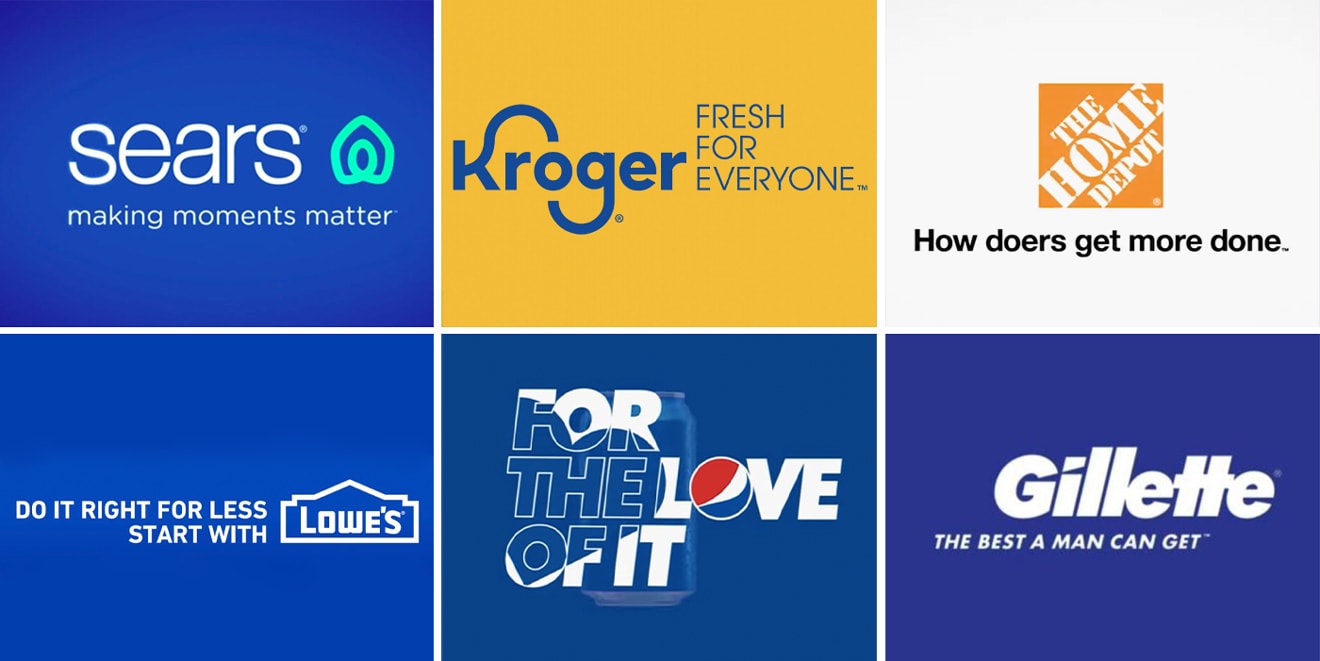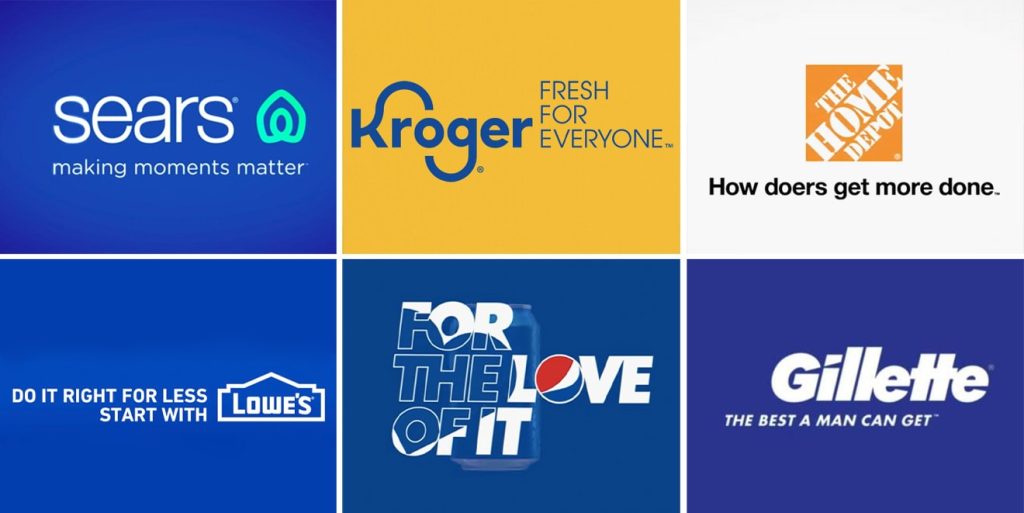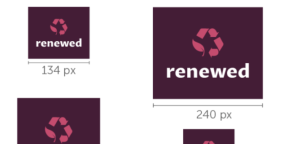
Are you struggling to come up with a catchy slogan for your business? A slogan is a powerful marketing tool that can help you stand out in a crowded market. It’s a short and memorable phrase that communicates your brand’s values, vision, and purpose. In this article, we’ll provide you with some tips to create a memorable slogan that resonates with your target audience.
First, it’s essential to understand the heart of your brand. Your slogan should be an extension of your business and should align with your brand’s values and vision. Take some time to reflect on what sets your brand apart, and what message you want to convey to your customers. A well-crafted slogan can create a lasting impression on customers and help build brand loyalty.
Second, make sure your slogan is simple, memorable, and easy to understand. Avoid using jargon or complex language that might confuse your audience. A great slogan should be easy to say, easy to remember, and easy to share. Keep it short and sweet, and make sure it’s something that your customers will want to repeat and share with others.
Understanding Slogans
A slogan is a short phrase or tagline that is used to represent a brand or company. It is a powerful tool for creating a lasting impression on customers and promoting brand recognition. A good slogan should be memorable, catchy, and convey the essence of the brand.
There are different types of slogans, including descriptive, emotional, and provocative. Descriptive slogans focus on the features and benefits of the product or service. Emotional slogans appeal to the emotions of the audience and create a connection with the brand. Provocative slogans are bold and controversial, and they aim to grab attention and spark conversation.
To create a successful slogan, you need to understand the heart of your brand. Your slogan should reflect your brand’s values, vision, and purpose. It should work hand-in-hand with all your other branding elements to create a cohesive and consistent message.
When brainstorming slogan ideas, consider the following tips:
- Keep it short and simple: A good slogan should be easy to remember and repeat.
- Be unique: Your slogan should stand out from the competition and be distinctively yours.
- Use strong, active language: Use verbs and action words to create a sense of energy and excitement.
- Focus on the benefits: Your slogan should highlight the benefits of your product or service.
- Appeal to emotions: Emotions are a powerful tool for creating a connection with your audience.
- Test your slogan: Get feedback from your target audience and make sure your slogan resonates with them.
In summary, a slogan is a powerful tool for promoting your brand and creating a lasting impression on customers. To create a successful slogan, you need to understand your brand’s values and purpose, and use strong, memorable language that resonates with your target audience.
The Importance of Slogans
A slogan is a catchy phrase that represents your brand or business and helps customers remember and identify it. A well-crafted slogan can be a powerful tool in your marketing arsenal. Here are some reasons why having a slogan is important:
1. Helps to Build Brand Identity
A slogan is an essential part of your brand identity. It helps to communicate your brand’s values, vision, and purpose to your target audience. A good slogan should be memorable, unique, and reflect your brand’s personality. It should also be consistent with your brand’s overall message and image.
2. Makes Your Brand Easy to Recall
A catchy slogan can help your brand stand out in a crowded market. It makes your brand easy to recall, remember, and identify when it counts most. A memorable slogan can also help to create an emotional connection with your customers, making them more likely to choose your brand over your competitors.
3. Promotes Your Business
A well-crafted slogan can help to promote your business and increase brand awareness. It can be used in advertising campaigns, on packaging, and on promotional materials. A good slogan should be able to convey your brand’s message in a concise and memorable way.
4. Establishes Your Brand’s Reputation
A slogan can help to establish your brand’s reputation and credibility. A well-crafted slogan can make your brand seem more reliable, trustworthy, and professional. It can also help to differentiate your brand from your competitors and make it stand out in the minds of your customers.
In conclusion, having a well-crafted slogan is crucial for building a strong brand identity, promoting your business, and establishing your brand’s reputation. It is a powerful tool that can help to create an emotional connection with your customers and make your brand more memorable and recognizable.
Creating a Catchy Slogan
A catchy slogan is a powerful tool that can help your brand to stand out from the competition and remain in the minds of your customers. Here are some tips to help you create a catchy slogan:
- Keep it simple: A catchy slogan should be easy to remember and easy to say. Avoid using complex or technical terms that may confuse your audience.
- Brainstorming: Start by brainstorming a list of words and phrases that represent your brand and its values. Then, try to combine them into a catchy phrase that captures the essence of your brand.
- Make it memorable: A good slogan should be memorable and easy to recall. Use rhyming words, alliteration, or other literary devices to make your slogan more memorable.
- Write a slogan that reflects your brand: Your slogan should reflect your brand’s unique selling proposition and its values. It should be consistent with your brand’s messaging and tone of voice.
- Be creative: Don’t be afraid to be creative and think outside the box. A catchy slogan should be unique and original, and should capture the attention of your audience.
- Test it out: Once you have come up with a few catchy slogans, test them out on your target audience. Ask for feedback and use this feedback to refine your slogan until you find the one that resonates the most with your audience.
By following these tips, you can create a catchy slogan that captures the essence of your brand and helps you to stand out from the competition. Remember to keep it simple, memorable, and reflective of your brand’s values.
Key Elements of Successful Slogans
Your slogan is the one thing that will stick in the minds of your customers long after they have interacted with your brand. It is therefore important to ensure that your slogan is memorable, unique, and appealing to your target audience. Here are some key elements of successful slogans that you should consider when creating your own:
Mission and Message
Your slogan should communicate your brand’s mission and message in a clear and concise manner. It should be aligned with your brand’s values and vision, and should convey a positive message that resonates with your target audience.
Originality and Uniqueness
Your slogan should be original and unique, and should set you apart from your competitors. It should be something that your customers can associate with your brand and that they will remember when they think of your products or services.
Consistency and Flow
Your slogan should be consistent with your brand’s identity and should flow well with your other branding elements. It should be easy to remember and should have a natural flow that makes it easy to say and remember.
Call to Action
Your slogan should include a call to action that encourages your customers to take action. It should be something that motivates them to engage with your brand and to take the next step, whether it’s making a purchase or signing up for your digital newsletter.
Value Proposition and Promise
Your slogan should communicate your brand’s value proposition and promise. It should be something that tells your customers what they can expect from your products or services and why they should choose you over your competitors.
Story and Audience
Your slogan should tell a story that resonates with your target audience. It should be something that they can relate to and that speaks to their needs and desires. It should also be something that is appropriate for your target audience and that they can understand and appreciate.
In summary, a great slogan is one that is memorable, unique, and appealing to your target audience. It should communicate your brand’s mission and message in a clear and concise manner, be original and consistent with your brand identity, include a call to action, and communicate your brand’s value proposition and promise. By considering these key elements when creating your own slogan, you can create a powerful and effective marketing tool that will help you stand out in a crowded marketplace.
Slogans and Branding
When it comes to branding, a catchy slogan can make all the difference. A great slogan can help your brand stand out in a crowded market, increase brand recognition, and communicate your brand’s values and personality in just a few words. Here are some tips for creating a slogan that will help your brand succeed:
- Keep it short and sweet: A good slogan should be easy to remember and easy to say. Aim for no more than 7-8 words, and try to use simple, straightforward language.
- Be unique: Your slogan should set your brand apart from the competition. Avoid generic phrases that could apply to any brand, and try to come up with something that is specific to your brand’s values and personality.
- Make it memorable: A great slogan should stick in people’s minds long after they’ve seen or heard it. Use rhyme, alliteration, or other literary devices to make your slogan more memorable.
- Be consistent: Once you’ve come up with a slogan, use it consistently across all of your marketing materials. This will help build brand recognition and make your brand more memorable.
Some of the most successful brands in the world have used slogans to help build their brand and increase brand recognition. For example, Nike’s “Just Do It” slogan has become synonymous with the brand’s values of determination and perseverance. Audi’s “Vorsprung Durch Technik” slogan communicates the brand’s commitment to innovation and cutting-edge technology. Apple’s “Think Different” slogan has become a rallying cry for the brand’s creative and innovative customers.
Other brands have used slogans to communicate their brand’s personality and values. Bounty’s “The Quicker Picker Upper” slogan communicates the brand’s commitment to efficiency and effectiveness. KFC’s “Finger Lickin’ Good” slogan emphasizes the brand’s focus on delicious, finger-licking food. Maybelline’s “Maybe she’s born with it. Maybe it’s Maybelline” slogan plays on the idea of natural beauty and confidence.
No matter what your brand’s values and personality are, a great slogan can help you communicate them to your customers. By following these tips and studying the slogans of successful brands, you can create a slogan that will help your brand succeed.
The Role of Humor and Creativity
When it comes to creating a memorable and effective slogan, incorporating humor and creativity can be a powerful tool. Humor can help to capture attention and make your slogan more memorable, while creativity can help to set your brand apart from competitors and showcase your unique value proposition.
Humor can be an effective way to make your slogan more relatable and engaging for your target audience. A well-placed joke or clever pun can help to capture attention and make your slogan more memorable. However, it is important to use humor judiciously and ensure that it aligns with your brand values and messaging.
Creativity is another key element in creating a successful slogan. A creative slogan can help to set your brand apart from competitors and showcase your unique value proposition. It can also help to generate buzz and excitement around your brand, which can lead to increased brand recognition and customer loyalty.
When incorporating humor and creativity into your slogan, it is important to keep your target audience in mind. Your slogan should resonate with your target audience and be relevant to their needs and interests. It should also be clear and concise, with a strong call to action that encourages customers to engage with your brand.
Overall, incorporating humor and creativity into your slogan can be a powerful tool for capturing attention, setting your brand apart from competitors, and generating buzz and excitement around your brand. However, it is important to use these elements judiciously and ensure that they align with your brand values and messaging.
The Impact of Language and Rhythm
When it comes to creating a memorable slogan, language and rhythm are two essential components that you cannot ignore. The language you use can have a significant impact on how your slogan is perceived, and the rhythm can make it easier to remember.
One of the most effective ways to make your slogan memorable is to use language that is simple, direct, and easy to understand. Avoid using complex words or industry jargon that your audience may not be familiar with. Instead, use words that are commonly used and easily recognizable. This will make your slogan more relatable and easier to remember.
Another important aspect of language is the use of rhyme. Rhyming slogans are more memorable than those that don’t rhyme. The reason for this is that rhyming words create a rhythm that makes the slogan easier to remember. When people hear a slogan that rhymes, they are more likely to repeat it to themselves, which increases the chances of it sticking in their minds.
Another way to create a memorable slogan is to use rhythm. The rhythm of a slogan can make it more memorable and easier to remember. This is why many advertisers use jingles in their commercials. Jingles are short, catchy tunes that are designed to stick in your head. When you hear a jingle, you are more likely to remember the product or service being advertised.
In conclusion, language and rhythm are two essential components of a memorable slogan. By using simple, direct language and incorporating rhyme and rhythm, you can create a slogan that is easy to remember and will stick in your audience’s minds.
Slogans in Different Industries
Slogans are an essential part of any marketing campaign, and they play a crucial role in creating brand awareness and recognition. Different industries require different approaches to create a catchy and memorable slogan that resonates with their target audience. Here are some tips on how to create effective slogans in different industries:
Product-Based Industries
In product-based industries, slogans should highlight the unique features and benefits of the product. The slogan should be short, catchy, and memorable. It should also create an emotional connection with the customers and persuade them to buy the product. For example, Apple’s slogan “Think Different” emphasizes the company’s innovative and unique approach to technology.
Service-Based Industries
In service-based industries, slogans should focus on the benefits and value of the service. The slogan should convey the company’s expertise and professionalism while also creating a sense of trust and reliability. For example, FedEx’s slogan “The World on Time” highlights the company’s commitment to delivering packages on time.
Customer-Focused Industries
In customer-focused industries, slogans should emphasize the company’s dedication to customer satisfaction. The slogan should convey a sense of empathy and understanding while also highlighting the company’s unique selling proposition. For example, Zappos’ slogan “Delivering Happiness” emphasizes the company’s commitment to providing an exceptional customer experience.
Industry-Specific Slogans
In some industries, it may be beneficial to use industry-specific jargon or terminology in the slogan. This can help create a sense of authority and expertise while also appealing to the target audience. For example, in the construction industry, a slogan like “Building a Better Tomorrow, Today” can convey the company’s commitment to innovation and progress.
Brand Slogans vs. Business Slogans
Brand slogans focus on the overall message and values of the company, while business slogans focus on specific products or services. It’s important to strike a balance between the two and ensure that the slogans align with the company’s overall branding strategy. For example, Coca-Cola’s brand slogan “Taste the Feeling” emphasizes the emotional connection that customers have with the brand, while their business slogan “Open Happiness” focuses on the benefits of drinking Coca-Cola.
In conclusion, creating effective slogans requires a deep understanding of the target audience, the industry, and the company’s unique selling proposition. By following these tips, you can create a catchy and memorable slogan that resonates with your customers and helps build brand recognition.
Evaluating Slogan Effectiveness
When it comes to evaluating the effectiveness of a slogan, there are several key questions you should ask yourself. By answering these questions, you can determine whether your slogan is successful, timeless, and reliable.
Threshold Question: Are You Clear on Your Brand Strategy?
Before you can evaluate the effectiveness of your slogan, you need to make sure you are clear on your brand strategy. Your slogan should be aligned with your brand’s mission, values, and personality. If your slogan doesn’t support your brand strategy, it’s time to re-evaluate it.
Does Your Slogan Stand the Test of Time?
Iconic slogans are timeless and have stood the test of time. A good slogan should be able to remain relevant and effective for years to come. Evaluate whether your slogan has the potential to become timeless or if it will become outdated quickly.
Is Your Slogan Memorable?
A successful slogan is one that people remember. Your slogan should be catchy, easy to remember, and instantly recognizable. If your slogan is forgettable, it’s time to rethink it.
Does Your Slogan Resonate with Your Target Audience?
Your slogan should resonate with your target audience and speak to their needs and desires. Conducting a poll or survey can help you determine whether your slogan is effective in reaching your target audience.
Is Your Slogan Reliable?
A reliable slogan is one that accurately represents your brand and what it stands for. Your slogan should be truthful and not make exaggerated or false claims. If your slogan is not reliable, it can damage your brand’s reputation.
By evaluating your slogan’s effectiveness using these questions, you can determine whether your slogan is successful, timeless, and reliable. If your slogan falls short in any of these areas, it’s time to re-evaluate and make changes.
Slogans and Target Audience
When creating a slogan, it is important to keep your target audience in mind. Your audience is the group of people that your product or service is intended for. Understanding your audience’s needs, pain points, and aspirations is essential in crafting a slogan that will resonate with them.
Your target audience can be defined by a variety of factors, including demographics such as age, gender, income, and education level, as well as psychographics such as values, beliefs, and interests. Knowing your target audience will help you create a slogan that speaks directly to them and their unique needs.
When considering your target audience, it is also important to think about your target market. Your target market is the group of people who are most likely to buy your product or service. Understanding your target market will help you create a slogan that appeals to them and motivates them to take action.
If you are a local business, it is also important to consider your local audience. Your local audience is the group of people who live in the same geographic area as your business. Understanding your local audience will help you create a slogan that connects with them and makes them feel like a part of your community.
In summary, when creating a slogan, it is important to consider your target audience, target market, and local audience. Understanding these groups of people will help you create a slogan that speaks directly to them and motivates them to take action.
Slogans in Advertising
Slogans are an essential part of advertising. They are catchy phrases that capture the essence of a product or service and help create brand recognition. A well-crafted slogan can make your brand memorable and help it stand out from the competition.
One of the most important things to keep in mind when creating an advertising slogan is to make it simple and memorable. Your slogan should be short, easy to remember, and easy to pronounce. It should also be unique and differentiate your brand from others in the market.
Social media has become an integral part of advertising, and slogans play a crucial role in social media campaigns. A good slogan can help your social media posts go viral and generate more engagement. When creating slogans for social media, it’s important to keep them short and to the point. Use hashtags to make your slogans more visible on social media platforms.
Another essential element of a good advertising slogan is that it should be relevant to your target audience. Your slogan should speak to the needs and desires of your target audience and resonate with them. It should also be aligned with your brand’s values and personality.
In conclusion, slogans are a powerful tool in advertising that can help your brand stand out and create brand recognition. When creating slogans, keep them simple, memorable, and relevant to your target audience. Use them in social media campaigns to generate more engagement and make your brand more visible.
Barry Edwards is a digital marketing expert with a deep understanding of content strategy, logo, and branding principles. Holding a Bachelor’s degree in Marketing from Beaconhill College, he offers valuable insights on digital marketing trends and strategies through his writing. Follow Barry’s work to stay updated on the latest in online marketing and branding.



